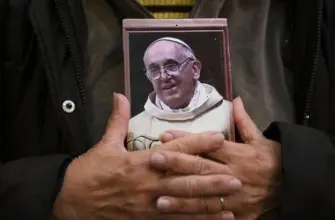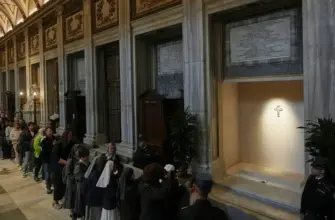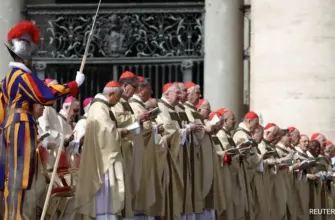As Holy Week unfolds, President Trump is increasingly positioning himself as a divinely appointed leader, weaving his personal faith deeply into the narrative of his presidency—particularly following last year’s attempted assassination.
During a recent address to Congress, he stated, “I believe that my life was saved that day in Butler for a very good reason. I was saved by God to make America great again. I believe that.” This sentiment has become central to his current term.
Reflecting on the experience at the National Prayer Breakfast earlier this year, Trump remarked, “It changed something in me, I feel. I feel even stronger. I believed in God, but I feel much more strongly about it.” He attributes his survival not to chance, but to divine intervention, recounting how he glanced down at a chart at precisely the right moment.
His son, Don Jr., echoed this sentiment: “He told me the chance of missing from that distance was like missing a one-foot putt. There had to be somebody that saved you, and I think I know who it is…and he looked up.”
Trump frequently cites his Presbyterian upbringing as foundational to his character and sense of purpose. Recalling childhood memories at the 2024 National Faith Summit, he spoke of attending Sunday school, witnessing Billy Graham crusades, and being raised by a devout mother and a “very strong” father.
“I was blessed to be raised in a churched home… and that faith lives on in my heart every single day,” he added. He argues this foundation is vital not only for his own spiritual wellbeing but also for the nation’s moral compass.
Over the past two years, Trump has repeatedly voiced concerns about America’s perceived spiritual decline, stating bluntly during an interview with Fox News: “One of the reasons that our country has lost, sort of, everything…is we don’t have religion to the same extent.”
He often uses the government’s response to the pandemic as a case study. “People weren’t even allowed to meet outside…They’d arrest everybody. They were fascists. They were horrible,” he lamented, adding that faith provides hope—the assurance of salvation.
At the 2023 Faith and Freedom Coalition event, he warned: “Religion is going down in terms of importance and popularity. This is not a question of popularity. We love God, and we want to protect ourselves. It keeps you sane. It keeps you honest. It keeps you good. It keeps you kind. It makes you help other people. And they’re trying to take that away from you.”
From the White House podium to rallies, Trump actively champions religious liberty as a core principle of his leadership.
- “As long as I’m president, no one is going to stop you from practicing your faith or from preaching what is in your heart,” he declared during his first term and has consistently reiterated.
- “Faith inspires us to be better, to be stronger, to be more caring and giving… It is time to put a stop to the attacks on religion.”
Trump also emphasizes international religious freedom, particularly the plight of persecuted Christians. In 2017, speaking with Christian Broadcasting Network (CBN) host David Brody, he highlighted the difficulties faced by Christians in Syria and pledged assistance: “They’ve been horribly treated… If you were a Christian in Syria it was impossible, at least very tough, to get into the United States… We are going to help them.”
He frequently links America’s founding principles directly to faith. At the 2019 National Day of Prayer dinner, he stated: “Our Declaration of Independence proclaims that our rights are bestowed on us by our Creator.” At a previous National Prayer Breakfast, he added: “Freedom is not a gift from the government, but that freedom is a gift from God. America will thrive, as long as we continue to have faith in each other and faith in God.”
Whether recalling childhood church experiences or recounting his near-miss with an assassin’s bullet, Trump’s message in 2025 remains clear: he views himself not merely as a leader of a nation but as someone fulfilling a divinely ordained purpose.
“I enjoy a very great relationship with God and a very great relationship” with evangelical Christian voters, he stated in 2016. Now, nearly a decade later, this message has become amplified—more personal, more fervent, and seemingly more providential.
Reflecting on the assassination attempt, he remarked, “It might have touched [my hair]. But not where it counts.”
In his own words: “I believed in God… but now something happened.”




